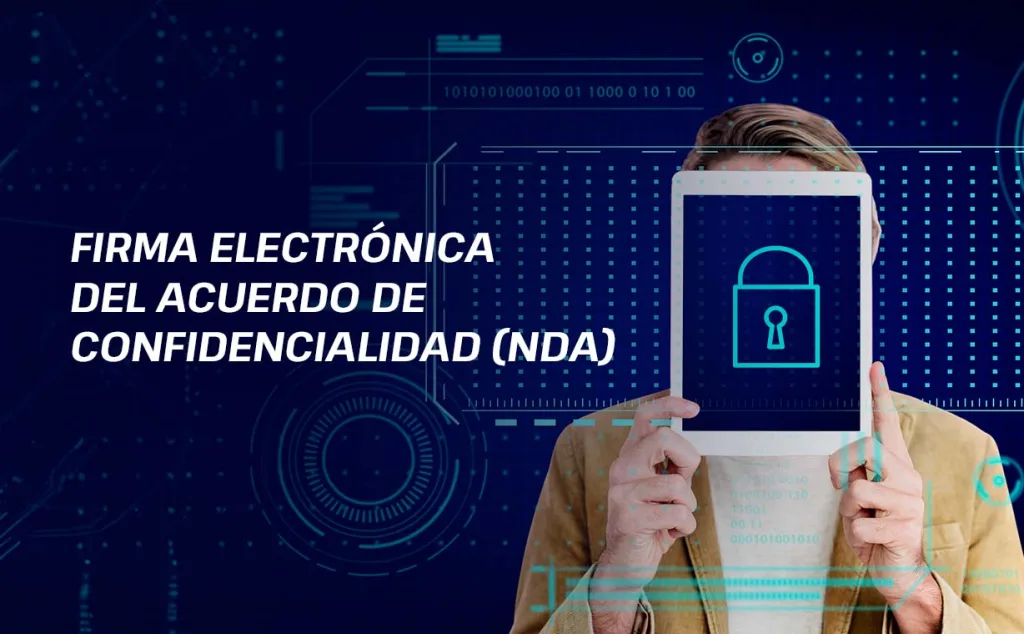Do you need to sign a confidentiality agreement and don’t know what it is or how to draft it? In this blog post we explain what it is and the main clauses you should add. We also tell you how to sign a confidentiality agreement from our reusable templates.
What is a confidentiality and non-disclosure agreement?
A confidentiality agreement orNon-Disclosure Agreement(NDA) is a legal contract between two or more parties that establishes the conditions and obligations related to the protection of confidential information.
The main purpose of a confidentiality agreement is to prevent unauthorized disclosure of sensitive or secret information to third parties and to protect the interests of the parties involved.
In short, a confidentiality agreement is an essential legal tool to protect sensitive information and ensure that the parties involved maintain the privacy of the shared data.
Important clauses in a confidentiality agreement
The content of a confidentiality agreement may vary according to the specific needs of the parties involved (business data, trade secrets, financial information, project proposals, marketing strategies, technological developments etc.).
Some of the main common elements are:
- Definition of confidential information: It specifies what type of information will be considered confidential and protected by the agreement.
- Duration: It establishes how long the agreement will apply and confidentiality will be maintained.
- Obligations of the parties: The duties of the parties in terms of protection and use of confidential information are described.
- Exceptions: Possible circumstances in which disclosure of confidential information is permitted are determined.
- Consequences for non-compliance: Liabilities and legal or compensatory actions are established in case one of the parties breaches the agreement.
Who signs a confidentiality agreement?
A confidentiality agreement can be signed by several parties depending on the context. The parties involved in signing a confidentiality agreement are usually:
- Company and Employee
- Company and Contractor/Freelancer
- Business Partners
- Investors and Companies
- Parties to a Merger or Acquisition
The precise moment to sign a confidentiality agreement varies according to the context and the nature of the situation (at the beginning of an employment or collaborative relationship, before sharing confidential information, prior to negotiations, investments or mergers, etc.).
How to sign a confidentiality agreement?
Signing a confidentiality agreement is essential for the parties involved and therefore steps must be taken to ensure that the signed agreement is legally valid.
Signing a confidentiality agreement electronically offers several advantages and benefits compared to the traditional paper signature methods.
From Viafirma, a company specialized in the development of solutions to manage the digital signature of documents, we can help you to carry out the electronic signature of confidentiality agreements.
Reasons why the electronic signature can be beneficial
- Efficiency and Speed: Electronic signatures allow parties to sign quickly and efficiently, without the need to print, scan and send physical documents.
- Remote Access: Parties can sign from any location at any time, regardless of where each person is geographically located.
- Cost Reduction: Electronic signatures eliminate the costs associated with printing, mailing and storing physical documents.
- Security: Our electronic signature software offers advanced security levels, such as identity authentication and encryption, to guarantee the integrity of the document and the authenticity of the signatures.
- Tracking and Auditing: Viafirma provides a detailed audit report with all the actions performed (who signed, when and from which location, how they signed, with which device, etc.).
- Signing on Multiple Devices: The signature of any of the parties can be from various devices (computers, tablets or smartphones), which adds flexibility and convenience and what in Viafirma you call “universal signature”.
- Legally Valid Signature: Our software is developed following scrupulously the international standards on the matter.
- Digital Storage: Electronically signed documents can be securely stored in digital format, which facilitates their access and search in the future.
- Online Collaboration: Electronic signatures allow multiple parties to collaborate and sign the same document seamlessly, even if they are located in different places.
Now you can sign a confidentiality agreement easily
Viafirma offers you comfort, speed and security for the electronic signature of confidentiality agreements and other legal documents, allowing you to accelerate the signing process and speed up the communication. By creating one of our templates you will be able to write these documents with comfort.
